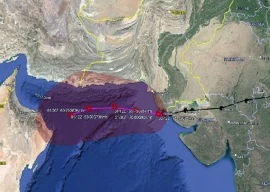
Have you ever noticed the lengths to which fairy tales go to avoid the mundane matters of economics? Most such stories avoid the complex subject by bringing in a king, a queen or a charming prince. Money problems solved already. Where the protagonist is poor like our Cinderella, her suffering stems from the cruelty of the people around her rather than the lack of things. When she finally needs things, providence resolves the issue with the help of magic, a fairy godmother and… wait for it… a prince. In this magical world, Jack finds his magic beans and wins big through theft.
Arguably, the escape from reality is the whole point of a fairytale. But wait a minute. Children are too young to know about poverty. Unless it is spoon-fed to them with a vengeance by angry parents or cruel playmates. Perhaps the purpose of these stories is to offer a break from reality to the grown-up storyteller, and the kids being the target demographic is just an excuse. Who is often weighed down by financial woes? Adults. Perhaps that is why J. M. Barrie created Peter Pan, a character that refuses to grow up. And sometimes, these fantasy stories can cause a permanent break from the financial miseries of an author. Look at the fairytale of J. K. Rowling.
I bring up these issues because every single day, I come across new cases of financial illiteracy. It is appalling how little people know about the one factor that dominates their lives. We will return to the issue of financial deficit in children’s stories in the West. But I hope you remember I told you about Mushtaq Yusufi’s thoughts regarding the portrayal of businessmen in classic Urdu literature. He says the only purpose of a merchant or a businessman’s appearance in such stories is to be robbed and robbed in a way that the sympathies of a reader remain with the robber. Only someone with Yusufi Saheb’s subtle background would notice such nuances, for he was a professional banker.
Urdu literature’s approach to economics closely resembles the attitude of our media. Every business is run by money, but there is one industry in Pakistan — the media — whose sole purpose seems to be to distract your attention away from money and sometimes absolutely refuse to acknowledge its existence. The only kind of economics our media seems interested in involves scandals. Because such coverage can provide twin opportunities to gossip and spread hate against the politicians it doesn’t like. For clarity, let me point out that when I say media, I mean it the same way an average Joe perceives it. By media, he usually means news television. I know enough brilliant beat reporters, editors and field experts in print journalism to insinuate otherwise. But when it comes to our electronic media, you know something is rotten in the state of Denmark when the only two business channels ever known to this country eventually have to be converted into run-of-the-mill political news channels.
Back to money in the fantasy world. There is a reason why Tom Holt’s works keep growing on me. Because in the middle of a very intense magical environment, he finds economic angles to exploit. For instance, in “The Outsorcerer’s Apprentice”, strange financial opportunities keep popping up for characters like Jack, who trades his beans for a call centre job. Likewise, the girl from The Red Riding Hood unravels the entire fabric of the fairytale by highlighting how financially unsustainable the story’s mundane routines are. In the end, it is revealed that a Milton Friedman-like character has walked into a parallel reality full of magic and fairy tales and has contaminated the minds of innocent creatures living there with his philosophy to earn profits.
But most amusing is his “The Management Style of the Supreme Beings”. Amusing because it involves the grand design. In the story, what appears to be the Christian God — almost but not quite because this one has two sons, Jay and Kevin — grows weary of running earth and decides to sell the business off. A robust company run by the Venturi brothers takes over the business and immediately gut the good vs evil paradigm. Hell is sealed off and made an independent entity. The good and evil system is replaced with a financial penalty system reminiscent of the indulgences that triggered the reformation in Europe. You commit a crime, a window opens in the air, a collector steps out and extracts exorbitant sums from you. There is a prison system too, but your punishment is prolonged boredom, not eternal damnation or torture. Someone with money can bail you out. No need to tell you that it is a runaway success.
I bring all this up because it is clear that financial distress in society is reaching its peak. And good, hardworking people are at a loss to make ends meet. And if there were investment opportunities to save their hide, the system does a great job of hiding it from their sight. Remember, for the rich, there are plenty of well-advertised opportunities to save and profit. But not for a working-class man or woman. The businesses that create instruments to benefit them do a poor job of reaching and educating them. Who does? Loan sharks like the app scammers who recently caused a gentleman to commit suicide.
For a long time, I have believed that if our education system does a better job of creating financial awareness among pupils, this can lead to a substantial improvement in people’s living standards. But our entire system is rigged to keep an ordinary citizen ignorant about how money works. Your money, no matter how little, should work for you. You should not be working for money. No wonder then that the country always seems to struggle with economic crises.
On this World Population Day, I was asked to comment on the participation of women in the workforce. I pointed out that there is a reason why this country keeps limping around in circles. Because its one leg either doesn’t work or barely does so. Make no mistakes, I will never downplay the sacrifices made by homemakers. But since they don’t directly contribute to the economy, they remain financially dependent and their households poorer. If they earn directly, their status improves, and so does their bargaining position within the household. Money is real power.
In order for this country to be financially viable, we will have to do a better job of educating our citizens about money matters, creating accessible opportunities and helping them out when they are in financial distress. There is no downside to this.
Published in The Express Tribune, July 15th, 2023.
Like Opinion & Editorial on Facebook, follow @ETOpEd on Twitter to receive all updates on all our daily pieces.



1725190400-0/Untitled-design-(6)1725190400-0-165x106.webp)
1725189942-0/Untitled-design-(4)1725189942-0-165x106.webp)
1725189415-0/Untitled-design-(5)1725189415-0-165x106.webp)













COMMENTS
Comments are moderated and generally will be posted if they are on-topic and not abusive.
For more information, please see our Comments FAQ